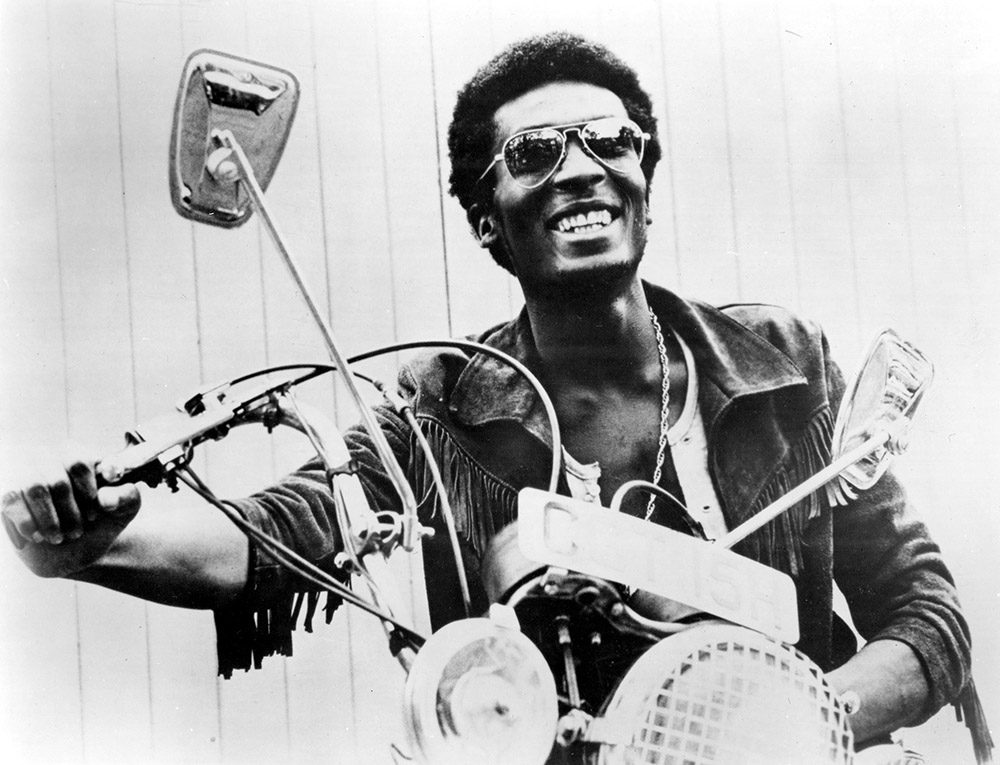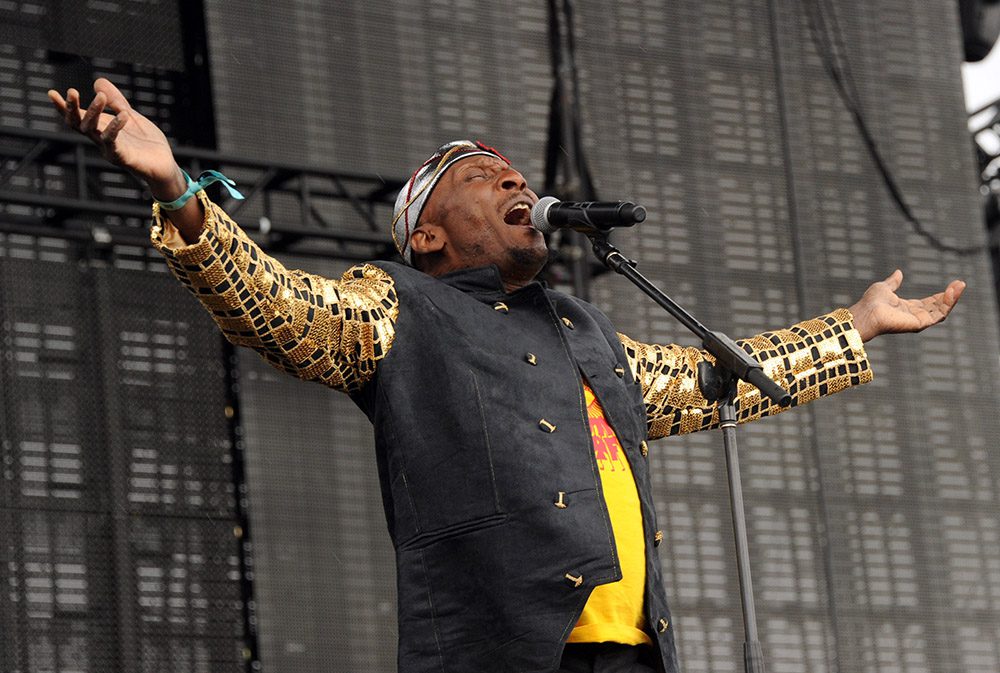Jimmy Cliff, Reggae Pioneer and Star of ‘The Harder They Come,’ Dies at 81

Jimmy Cliff, the reggae legend and star of The Harder They Come, the 1972 movie and soundtrack that brought Jamaican music to the world, has died. He was 81.
The Jamaican musician and actor died following a seizure and battle with pneumonia, his wife, Latifa Chambers, wrote Monday on Instagram.
“I am thankful for his family, friends, fellow artists and coworkers who have shared his journey with him,” she wrote. “To all his fans around the world, please know that your support was his strength throughout his whole career. He really appreciated each and every fan for their love.”
The first international star of reggae and one of its greatest ambassadors, Cliff had his first hit in 1969 with the single “Wonderful World, Beautiful People,” which reached No. 6 in the U.K. and No. 25 on the Billboard Hot 100 in the U.S.
His recording of Johnny Nash’s “I Can See Clearly Now,” included on the soundtrack of Cool Runnings, the 1993 film about the Jamaican Olympic bobsled team, peaked at No. 18 in January 1994.
He earned Grammys in 1985 for best reggae recording (Cliff Hanger) and in 2012 for best reggae album (Rebirth).
The spiritual Cliff received Jamaica’s Order of Merit, the highest honor that can be granted by the government for achievements in the arts and sciences, in 2003. Six years later, when he learned he was being inducted into the Rock and Roll Hall of Fame, he remarked, “This is good for Cliff, good for Jamaican music and good for my country.”
He and Bob Marley, posthumously inducted into the Rock Hall in 1994, are arguably reggae’s most well-known practitioners.
Cliff’s career breakthrough came with the release of the soundtrack to The Harder They Come, in which he starred as Ivanhoe Martin, an ambitious singer from the Jamaican countryside who gets caught up in the world of drugs and violence in Kingston’s notorious Trenchtown ghetto.
Half of the songs were written and performed by him, including the anthem-like title track; the jaunty “You Can Get It if You Really Want,” which he first recorded in 1970; and the psalm-like spiritual “Many Rivers to Cross.”
The soundtrack, released in the U.S. by Chris Blackwell’s Mango label, launched Cliff’s career and that of Toots and the Maytals as well.

One of nine children, James Chambers was born on July 30, 1944, in St. James, Jamaica. “There was about 10 years difference between us all, and I was the second to last, which wasn’t so good because the bigger ones could always manipulate you,” he told The Guardian in a 2012 interview.
Raised by his grandmother and father, a tailor, he moved to Kingston when he was 14 and said he adopted his stage surname to make note of the heights he intended to climb with his musical career. His influences growing up were Fats Domino, Sam Cooke and Ray Charles, among others.
Cliff’s initial recordings dated to 1962, and two of his earliest songs — “Ska All Over the World” and “Trust No Man” — were included on the 1964 reggae anthology The Real Jamaican Ska, which came out in the U.S. on Epic Records.
Collaborating with legendary Chinese Jamaican producer Leslie Kong, Cliff released a string of successful singles in his home country throughout the ‘60s, including “Hurricane Hattie,” “Miss Jamaica” and “King of Kings.” On the strength of those successes, he was among those chosen to represent his country at the 1964 World’s Fair in New York.
It was Cliff who first brought Marley to Kong’s attention.
A left-handed guitarist, Cliff signed with Blackwell’s Island Records in 1965 and was groomed to be the artist to break reggae into the worldwide consciousness and marketplace.
He even moved to London to achieve that goal, and his first British album, Hard Road to Travel, was released in 1967. A year later, “Wonderful World, Beautiful People” made the top 10 in the U.K. while “Waterfall” became a huge hit in Brazil.
Cliff was always a political songwriter, as evidenced by his 1970 single, “Vietnam,” which won praise from Bob Dylan. That same year, his cover of Cat Stevens’ “Wild World” — featuring Stevens producing and playing piano — rose to No. 8 in the U.K.
He traveled to Muscle Shoals in Alabama to record 1971’s Another Cycle, where he experimented with more of a pop/soul sound just before his breakthrough with the Jamaica-set The Harder They Come.
Cliff had only acted in school plays when he was tapped to star in The Harder They Come, the first film written and directed by a Jamaican (Perry Henzell). Premiering at the 1972 Venice Film Festival and released stateside by Roger Corman‘s New World Pictures in ’75, it became a favorite of midnight moviegoers and a cult classic.
(In 1970, Desmond Dekker, a friend and fellow Jamaican whom Cliff also recommended to Kong, recorded Cliff’s “You Can Get It if You Really Want,” which made it to No. 2 on the British singles chart.)
Cliff’s 1972 single “Trapped,” also produced by Stevens, received great exposure when a cover by Bruce Springsteen and the E Street Band was included on the We Are the World charity album in 1985.
After a final album for Island, 1973’s Struggling Man, Cliff signed with Reprise Records for such LPs as 1975’s Brave Warrior and 1978’s Give Thanx, which included the call-to-arms song “Stand Up and Fight Back.”
In 1976, he performed on the 12th episode of Saturday Night Live.
Cliff returned to reggae with 1981’s Give the People What They Want and 1982’s Special, the latter marking his debut for Columbia Records. It was recorded at Channel One Studios in Kingston with some of Jamaica’s leading producers and engineers.
He dubbed his touring band Oneness, and they performed all over the globe, including Africa.
Cliff came back to the movies in the comedy Club Paradise (1985), starring Robin Williams and Peter O’Toole, contributing several songs to the soundtrack, including one with Elvis Costello (“Seven Day Weekend”). Later, he performed in the 1990 movie Marked for Death, starring Steven Seagal.
In 1986, Cliff and Oneness opened for Steve Winwood on tour, and in 1993, his version of “I Can See Clearly Now” became his first U.S. top 20 pop hit.

His 2002 album, Fantastic Plastic People, released only in Europe, saw him collaborating with Joe Strummer, Annie Lennox, Dave Stewart and Sting. A year later, a deluxe edition of The Harder They Come and a two-disc Jimmy Cliff anthology were released, cementing his role as a world music pioneer.
He was inducted into the Rock Hall in 2010 by Wyclef Jean.
Cliff worked with Rancid singer/guitarist Tim Armstrong, who produced his 2011 EP Sacred Fire and the full-length 2012 release Rebirth, which Rolling Stone said was the strongest case for the vitality of West Indian roots music that anyone has made in decades.”
He showed he still had what it takes with the 2022 album Refugees, writing the title track “due to emotional feelings toward freedom taken away from human beings,” he said. “None of us should be forced by violence, economics, war or persecution to leave our country against our will.”
Survivors include his daughters, Black Panther actress Nabiyah Be, Odessa and Lilty, and his son, Aken.
“My role has always been as the shepherd of reggae music,” he said. “When they wanted to bring reggae to America, they sent Jimmy Cliff. When they wanted to bring reggae to England, they sent Jimmy Cliff. When they wanted to bring reggae to Africa, they sent Jimmy Cliff.”
HiCelebNews online magazine publishes interesting content every day in the music section of the entertainment category. Follow us to read the latest news.





